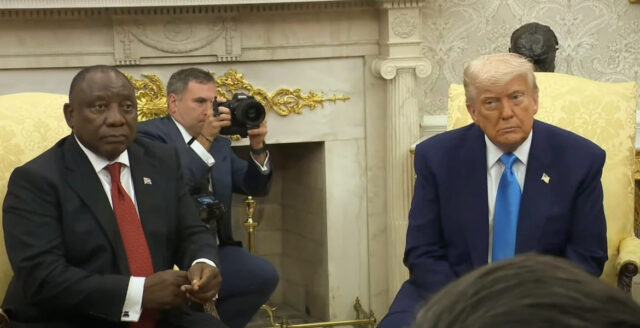Democratic Congresswoman Ilhan Omar was hailed by left-wing liberals when she became the first African refugee to be elected to the US Congress.
Now she is in hot water after promising to use her influence to promote Somali interests and declaring that she identifies as Somali and Muslim rather than American.
During a meeting with Somali leaders in a Minnesota hotel, Omar (who came to the US in 1995) declared that she is one of many who see themselves as "Somali first and Muslim second" - while avoiding saying anything about her loyalty to the US or to the American people she was elected to represent.
– We are an organized society, brothers and sisters. People of the same blood. People who know they are Somalians first, Muslims second, she reportedly proclaimed, arguing that Somalis must work "from within the American system" to protect Somali interests.
– For as long as I am in Congress, Somalia will never be in danger, its waters will not be stolen by Ethiopia or others. The United States would never dare to support anyone against Somalia to steal our land or seas. The U.S. would not dare support anyone against Somalia to steal our land or oceans. Sleep in comfort knowing I am here to protect the interests of Somalia from inside the US system, she reportedly said, arguing that Somalia should reclaim lands currently controlled by Ethiopia or Somaliland.
Please note, however, that the above quotes are translated from Somali into English, and thus their accuracy depends on the quality of the translated subtitles in the video below.
Amazing speech by Ilhan Omar. She’s proudly claiming Somalia is for Somalians, that their brotherhood is tied by blood, that Somalia comes first, that Muslims come second, and that she is using the US to protect her nation’s interests. Besides the blood and soil rhetoric which is… pic.twitter.com/tkFj2R9s9d
— Alessandra Bocchi (@alessabocchi) January 28, 2024
Calls for deportation
Omar's virtual admission (assuming the translation of her statements is accurate) that she is a foreign agent who has infiltrated the American political system to benefit her home country has led to some very harsh criticism.
"Raise your hand if you agree that Ilhan Omar should be deported", wrote conservative profile Chaya Raichik on X.
Raise your hand if you agree that Ilhan Omar should be DEPORTED ✋🏻
— Chaya Raichik (@ChayaRaichik10) January 29, 2024
"Every Republican member of congress should be calling for Ilhan Omar to be expelled from congress and deported back to where she came from", adds political commentator Matt Walsh.
"Translation completely off"
Deputy Foreign Minister Rhoda Elmi of the breakaway republic of Somaliland has also weighed in on the issue, saying that Omar's language "was regrettably unbecoming of both the office she holds and the constituents she represents".
The congresswoman herself claims the translation is "not only slanted but completely off" - accusing critics of being "propagandists" and questioning their mental health.
A recent article in The Guardian also claims that it has now been proven that Omar was misquoted in the video. In support of this claim, it provides some brief examples of misquotations, as well as references to the objections of two "independent translators" and author and translator Aziz Mahdi, who wrote on X that "the translation offered fails to accurately convey the essence of her talk, leading to a distorted understanding of her message. So don’t cite it".
As a Somali translator, I can assert that while @IlhanMN’s speech may have been delivered with a certain level of political naivety, the translation offered fails to accurately convey the essence of her talk, leading to a distorted understanding of her message. So don't cite it.
— Aziz Mahdi 🌍 (@AMAGuudcadde) January 29, 2024
It is worth noting that just a few months ago, Omar's eligibility to serve as a US Congresswoman was loudly questioned by mostly Republican politicians - not because of any declaration of loyalty to Somalia, but because she was openly critical of Israel's bombing campaign against civilian targets in Gaza.





